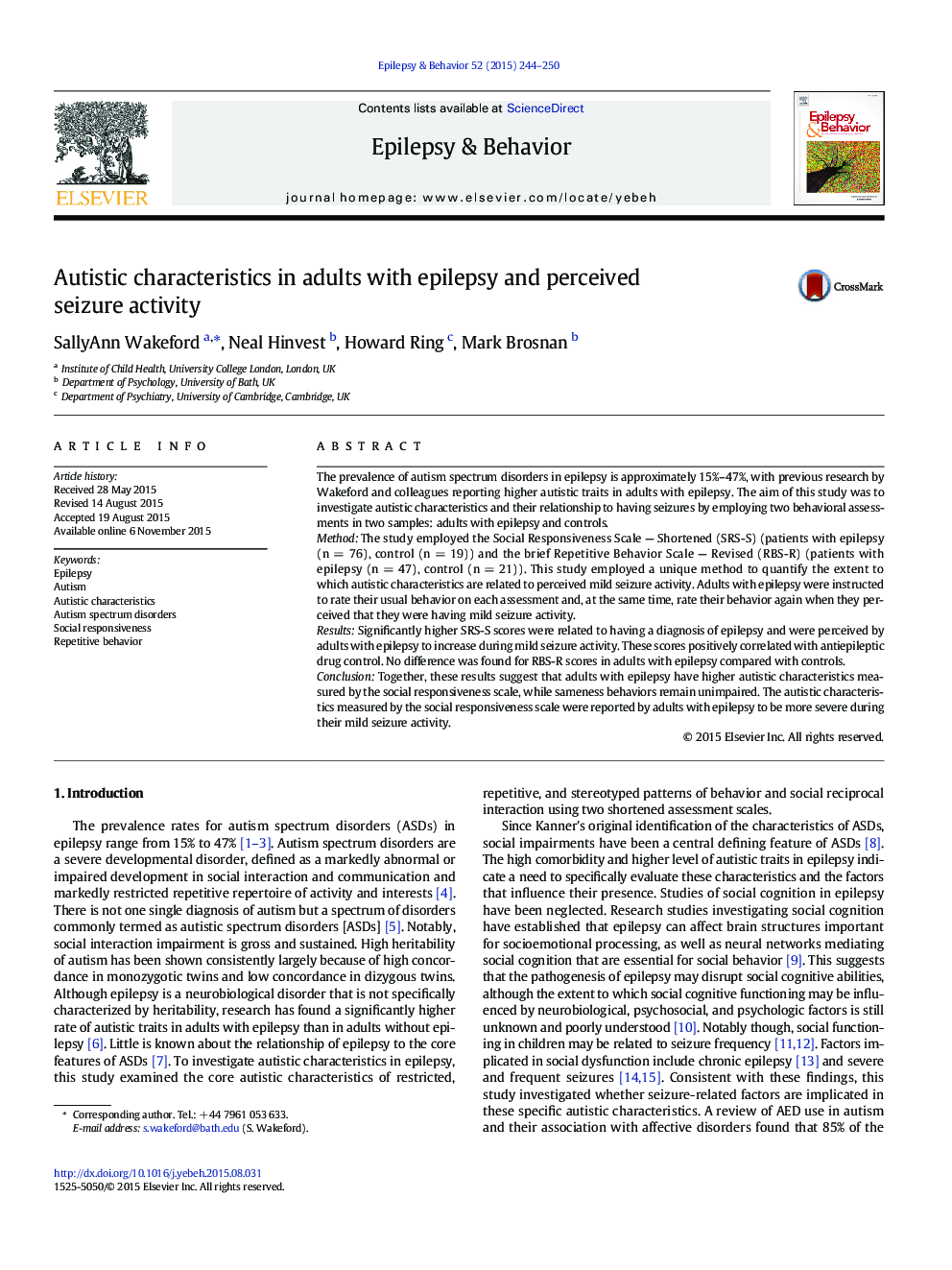| کد مقاله | کد نشریه | سال انتشار | مقاله انگلیسی | نسخه تمام متن |
|---|---|---|---|---|
| 6010418 | 1185876 | 2015 | 7 صفحه PDF | دانلود رایگان |
- Investigation of autistic characteristics in epilepsy
- Two conditions for self-assessment, with/without self-perceived seizure activity
- Adults with epilepsy self-rated more reciprocal social interaction deficits.
- Reciprocal social deficits worsened during self-perceived mild seizure activity.
The prevalence of autism spectrum disorders in epilepsy is approximately 15%-47%, with previous research by Wakeford and colleagues reporting higher autistic traits in adults with epilepsy. The aim of this study was to investigate autistic characteristics and their relationship to having seizures by employing two behavioral assessments in two samples: adults with epilepsy and controls.MethodThe study employed the Social Responsiveness Scale - Shortened (SRS-S) (patients with epilepsy (n = 76), control (n = 19)) and the brief Repetitive Behavior Scale - Revised (RBS-R) (patients with epilepsy (n = 47), control (n = 21)). This study employed a unique method to quantify the extent to which autistic characteristics are related to perceived mild seizure activity. Adults with epilepsy were instructed to rate their usual behavior on each assessment and, at the same time, rate their behavior again when they perceived that they were having mild seizure activity.ResultsSignificantly higher SRS-S scores were related to having a diagnosis of epilepsy and were perceived by adults with epilepsy to increase during mild seizure activity. These scores positively correlated with antiepileptic drug control. No difference was found for RBS-R scores in adults with epilepsy compared with controls.ConclusionTogether, these results suggest that adults with epilepsy have higher autistic characteristics measured by the social responsiveness scale, while sameness behaviors remain unimpaired. The autistic characteristics measured by the social responsiveness scale were reported by adults with epilepsy to be more severe during their mild seizure activity.
Journal: Epilepsy & Behavior - Volume 52, Part A, November 2015, Pages 244-250
